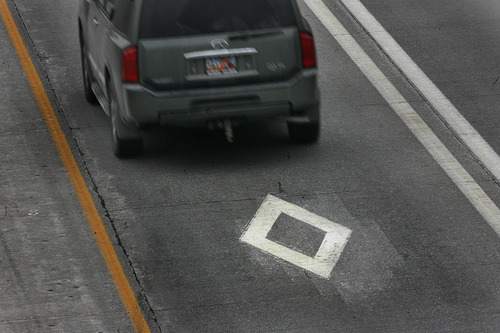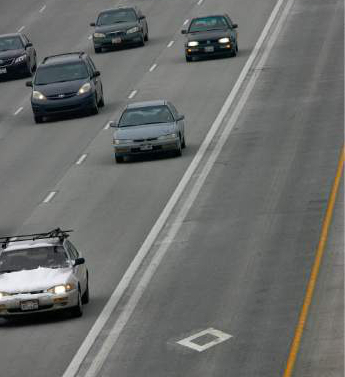This is an archived article that was published on sltrib.com in 2014, and information in the article may be outdated. It is provided only for personal research purposes and may not be reprinted.
One of every five vehicles using express lanes on Utah's Interstate 15 is violating the rules — either lacking the required two passengers, or failing to pay tolls, state officials reported Wednesday.
The Utah Department of Transportation said 19 percent of drivers in those lanes are violators, up from 17 percent two years ago.
The violators are clogging the express lanes, and have helped to lower speeds there to an average of 45.5 mph during peak drive times, UDOT Executive Director Carlos Braceras told the Legislature's Transportation Interim Committee.
He said federal rules require the state to keep average rush hour speeds in those lanes at least at 45 mph, or face potential financial sanctions. So the state is close to that threshold.
Braceras said that means the state is about to step up enforcement and ticket-writing to push violators out of those lanes.
"We pay about $18,000 a year," he said, for occasional blitzes by the Utah Highway Patrol to catch express-lane violators. Some blitzes are coming, Braceras said.
In addition, he said, "We're going to take on a concerted education campaign for folks… If people understand what we're trying to do with express lanes, what the purposes are, and how they operate better, we'll get more compliance."
Among the benefits, Braceras said, is that express lanes carry 54 percent more people than general-purpose lanes — because carpools carry more people, and generally higher speeds move more cars through. He said that high volume also decreases traffic in the other general-purpose lanes.
Braceras said 62 percent of express-lane users are in carpools, 15 percent pay tolls, 3 percent use are on buses or motorcycles and 1 percent have "C decals" for clean-fuel vehicles — besides the 19 percent who are violators.
Braceras said studies show that speeds in express lanes now average between 3 and 9 mph faster than general-purpose lanes, acting as an incentive for carpools or single-driver cars that choose to pay tolls.
Braceras said tolls vary according to congestion — between 25 cents and $1 a section depending on how heavy traffic is — to try to keep traffic flowing in the express lanes.
UDOT has noticed that a problem hurting flow is that some cars in the express lane travel far below the speed limit, Braceras said, and that makes it difficult for others to pass them. UDOT is exploring ways to add occasional passing lanes to the express lane to solve that.
I-15 has 62 miles of express lanes now, and another 10 miles are under construction in Davis County. Braceras said that is the longest continuous stretch of such lanes in America.





